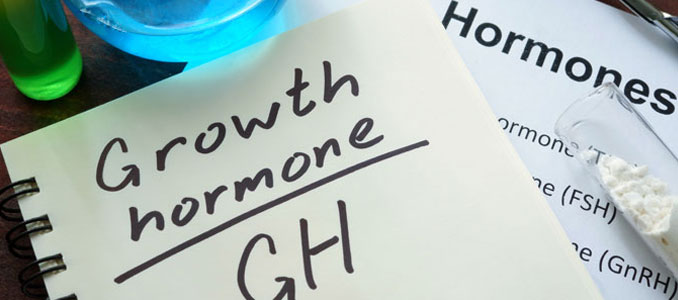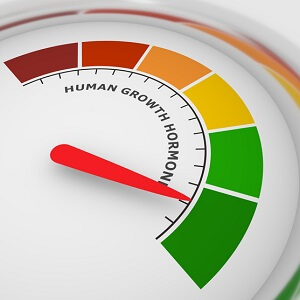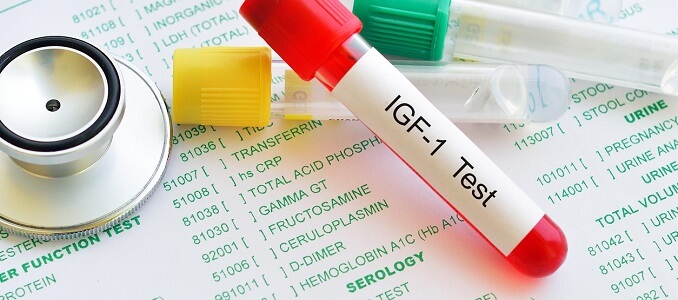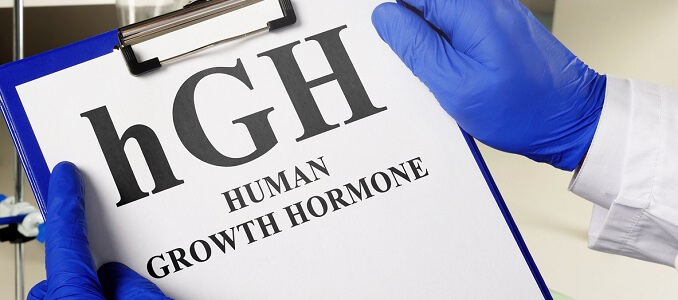Understanding Human Growth Hormone (HGH): Functions, Deficiency, and Therapy
Human growth hormone (HGH) plays a crucial role in growth, cellular regeneration, and cellular reproduction, regulating many critical processes in the body. This article provides an overview of HGH, its functions, deficiency, and treatment options.
What is Human Growth Hormone (HGH)?
Human growth hormone, or HGH, is a peptide hormone secreted by the anterior lobe of the pituitary gland [1]. HGH is responsible for stimulating and regulating cellular growth and rejuvenation throughout the body, contributing to strong bones, healthy muscles, and overall vitality.
Production and Secretion of HGH
Growth hormone-releasing hormone (GHRH) stimulates the pituitary gland to secrete HGH in bursts throughout the day [2]. Although HGH is essential during childhood, it remains necessary for adults to replace damaged cells, maintain muscle mass and bone health, and support various other physiological functions.
HGH and Steroids: Understanding the Difference
HGH is not a steroid, but a polypeptide hormone. It is often confused with anabolic steroids due to its illegal use by bodybuilders or athletes [3]. While HGH has anabolic properties, meaning it stimulates muscle tissue growth, it is not classified as an anabolic steroid.
Age-related Decline of HGH
HGH levels naturally decline as people age, beginning in their 20s. By the age of 55, HGH levels may be one-third lower than in younger individuals [4]. This decline coincides with reduced muscle mass and increased body fat, leading to adult-onset growth hormone deficiency in some cases.
What is Growth Hormone Deficiency (GHD)
Growth hormone deficiency occurs when the body produces insufficient amounts of HGH. In children, this results in abnormally short stature and may be caused by genetic disorders or conditions that impact the pituitary gland’s ability to produce HGH [5].
In adults, GHD can be a continuation of a deficiency from childhood or a result of the natural decline of HGH with age, referred to as adult-onset GHD or age-related GHD. Causes of adult-onset GHD include pituitary tumors, radiation therapy, head injuries, autoimmune diseases, and genetic conditions [6].
HGH Levels and Diagnosis
Normal HGH levels vary based on an individual’s size and weight, typically measured using Body Mass Index (BMI) [7]. Doctors diagnose growth hormone deficiency in adults using the following criteria:
- Peak HGH level less than 11.1 mcg/L in patients with BMI less than 25
- Peak HGH level less than 8.1 mcg/L in patients with BMI of 25 to less than 30
- Peak HGH level less than 4.1 mcg/L in patients with BMI equal to or greater than 30
HGH and Insulin-Like Growth Factor 1 (IGF-1)
IGF-1 is another hormone essential for bone and muscle growth, working in conjunction with HGH [8]. HGH stimulates the liver to produce and release IGF-1, and both hormones play a major role in regulating muscle mass and fat metabolism throughout the body.
Symptoms and Diagnosis of Growth Hormone Deficiency
Symptoms of growth hormone deficiency in both children and adults include fatigue, low energy, low libido, hair loss, skin issues, suppressed immune system, weight gain, memory loss, bone loss, and emotional changes [9]. Doctors use HGH stimulation tests to diagnose growth hormone deficiency, as HGH levels fluctuate throughout the day [10].
Treatment of Growth Hormone Deficiency
The most effective and safe treatment for growth hormone deficiency is HGH replacement therapy, which requires a doctor’s prescription [11]. Bioidentical growth hormone therapy, derived from human DNA, is used to treat both children and adults with GHD, ensuring compatibility with the body’s natural HGH.
Causes of Growth Hormone Deficiency in Adults
Growth hormone deficiency in adults can be caused by factors affecting pituitary function, such as disease or injury [12]. Additionally, adult-onset growth hormone deficiency, or age-related growth hormone deficiency, may result from the natural decline in HGH production as individuals age.
Benefits of Growth Hormone Therapy
For individuals with GHD, growth hormone therapy offers numerous benefits [13], including:
- Improved fat metabolism, resulting in more lean muscle and less fat
- Increased energy and vitality
- Enhanced libido and sexual function
- Better skin health, with reduced appearance of lines and wrinkles
- Improved sleep
- Enhanced cognitive functioning
- Improved heart health and reduced risk of cardiovascular disease
- Boosted immune system
- Improved mood
Can Growth Hormone Deficiency Be Cured?
While doctors do not typically refer to a “cure” for growth hormone deficiency, it can be effectively treated with growth hormone replacement therapy [14]. For patients with age-related growth hormone deficiency, this therapy has been shown to eliminate or minimize most symptoms associated with low HGH levels.
Conclusion
Human growth hormone plays a critical role in various bodily processes, and its deficiency can have significant health implications. Understanding the functions, production, and decline of HGH, as well as the diagnosis and treatment options for growth hormone deficiency, is essential for maintaining overall health and well-being.
Please note that the information provided in this article is for informational purposes only and is not intended as a substitute for professional medical advice, diagnosis, or treatment. Always seek the advice of your physician or other qualified healthcare provider with any questions you may have regarding a medical condition or treatment.
Sources:
[1] https://www.ncbi.nlm.nih.gov/pmc/articles/PMC2439518/
[2] https://www.ncbi.nlm.nih.gov/pmc/articles/PMC3206398/
[3] https://pubmed.ncbi.nlm.nih.gov/8363508/
[4] https://www.ncbi.nlm.nih.gov/pmc/articles/PMC3940697/
[5] https://www.ncbi.nlm.nih.gov/pmc/articles/PMC3183535/
[6] https://www.ncbi.nlm.nih.gov/pmc/articles/PMC3296190/
[7] https://www.ncbi.nlm.nih.gov/pmc/articles/PMC3591210/
[8] https://www.ncbi.nlm.nih.gov/pmc/articles/PMC2948421/
[9] https://www.ncbi.nlm.nih.gov/pmc/articles/PMC3183535/
[10] https://www.ncbi.nlm.nih.gov/pmc/articles/PMC3183535/
[11] https://www.ncbi.nlm.nih.gov/pmc/articles/PMC2439518/
[12] https://www.ncbi.nlm.nih.gov/pmc/articles/PMC3296190/
[13] https://www.ncbi.nlm.nih.gov/pmc/articles/PMC2439518/
[14] https://www.ncbi.nlm.nih.gov/pmc/articles/PMC3183535/






